Quotes & Sayings About Persuasion By Aristotle
Enjoy reading and share 16 famous quotes about Persuasion By Aristotle with everyone.
Top Persuasion By Aristotle Quotes
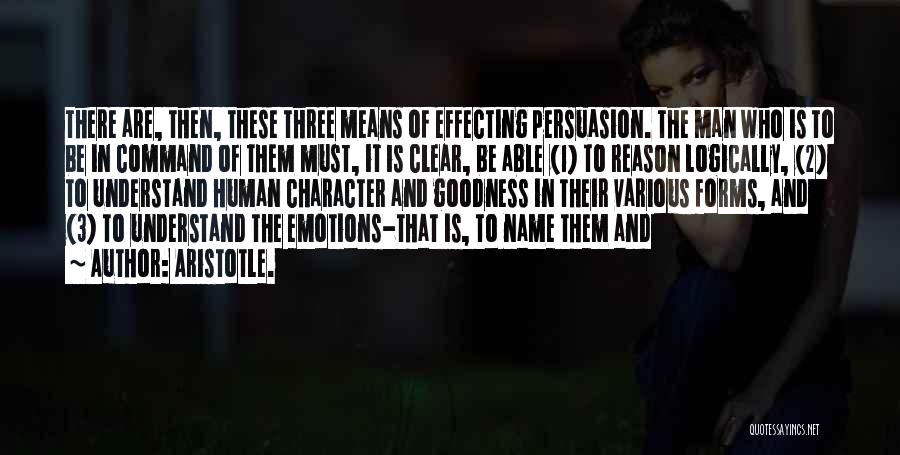
There are, then, these three means of effecting persuasion. The man who is to be in command of them must, it is clear, be able (1) to reason logically, (2) to understand human character and goodness in their various forms, and (3) to understand the emotions-that is, to name them and — Aristotle.
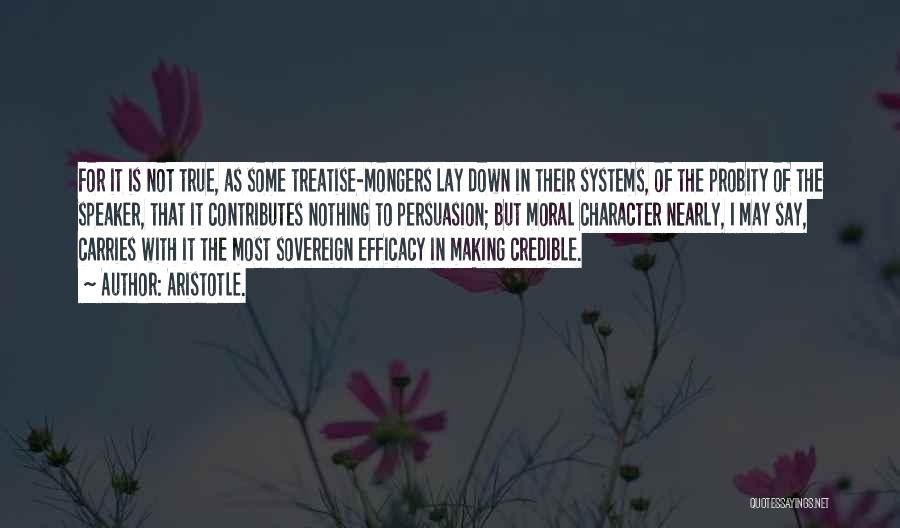
For it is not true, as some treatise-mongers lay down in their systems, of the probity of the speaker, that it contributes nothing to persuasion; but moral character nearly, I may say, carries with it the most sovereign efficacy in making credible. — Aristotle.
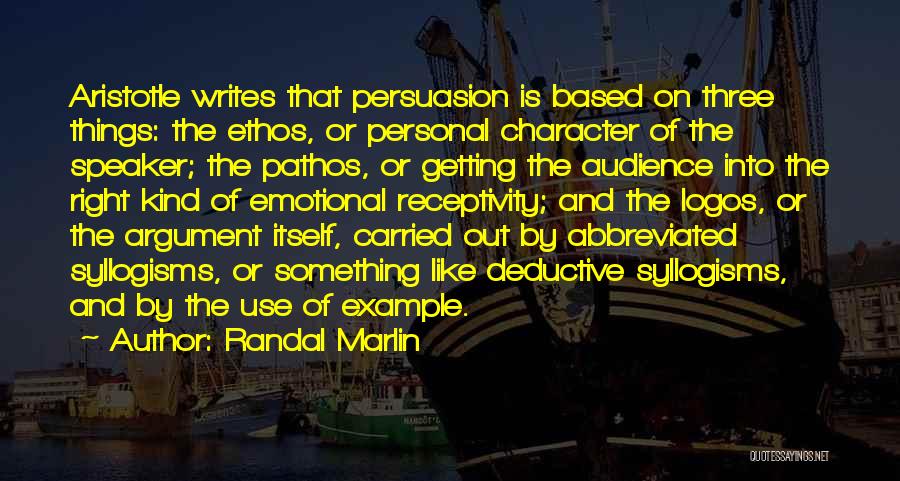
Aristotle writes that persuasion is based on three things: the ethos, or personal character of the speaker; the pathos, or getting the audience into the right kind of emotional receptivity; and the logos, or the argument itself, carried out by abbreviated syllogisms, or something like deductive syllogisms, and by the use of example. — Randal Marlin
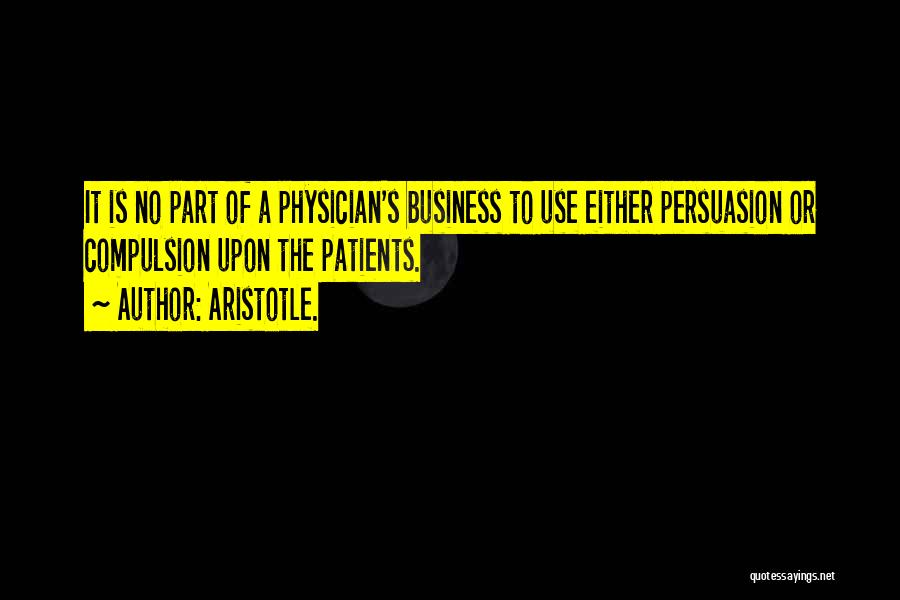
It is no part of a physician's business to use either persuasion or compulsion upon the patients. — Aristotle.
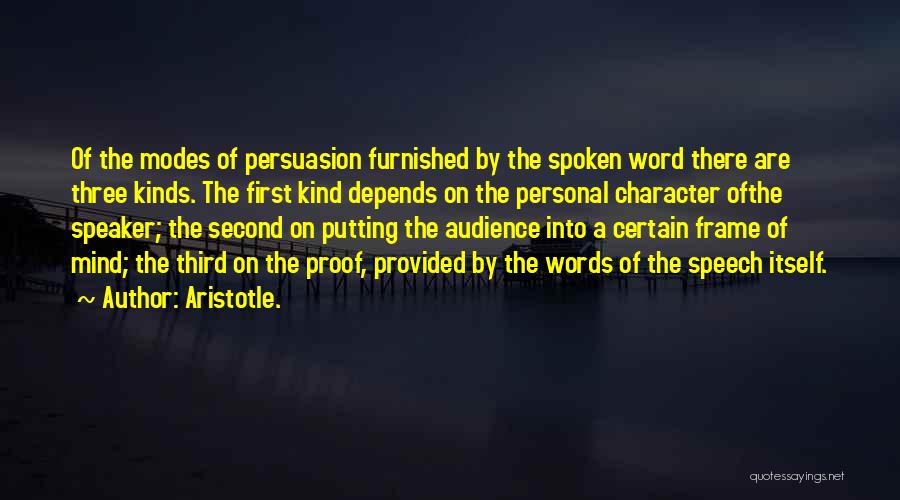
Of the modes of persuasion furnished by the spoken word there are three kinds. The first kind depends on the personal character ofthe speaker; the second on putting the audience into a certain frame of mind; the third on the proof, provided by the words of the speech itself. — Aristotle.
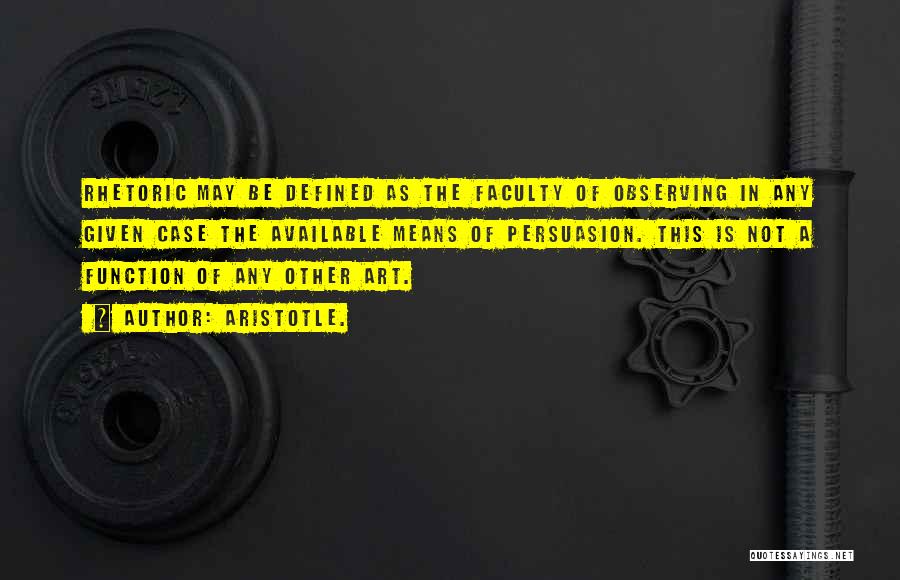
Rhetoric may be defined as the faculty of observing in any given case the available means of persuasion. This is not a function of any other art. — Aristotle.
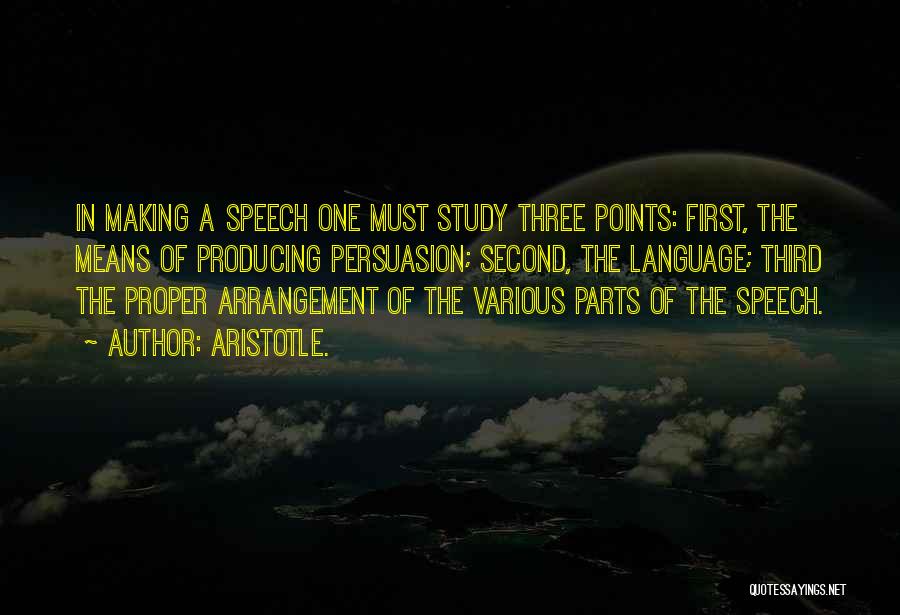
In making a speech one must study three points: first, the means of producing persuasion; second, the language; third the proper arrangement of the various parts of the speech. — Aristotle.
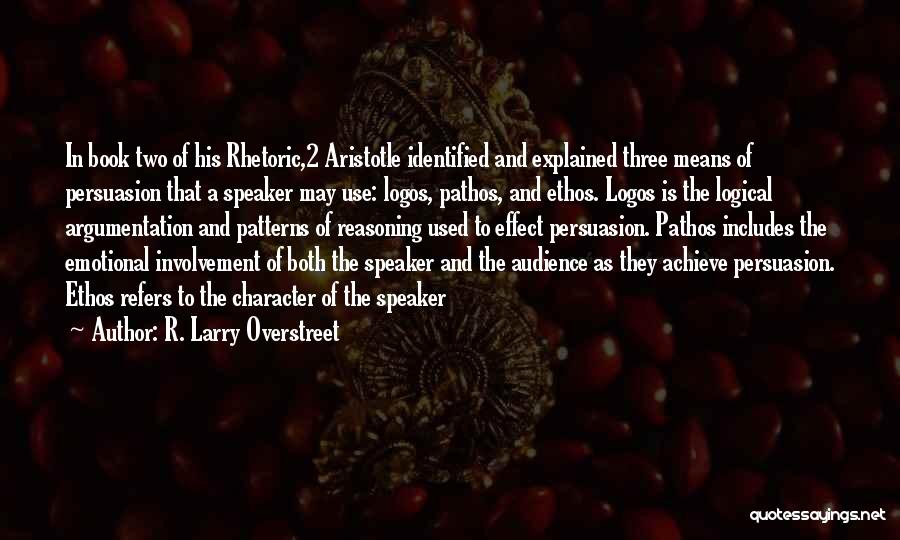
In book two of his Rhetoric,2 Aristotle identified and explained three means of persuasion that a speaker may use: logos, pathos, and ethos. Logos is the logical argumentation and patterns of reasoning used to effect persuasion. Pathos includes the emotional involvement of both the speaker and the audience as they achieve persuasion. Ethos refers to the character of the speaker — R. Larry Overstreet
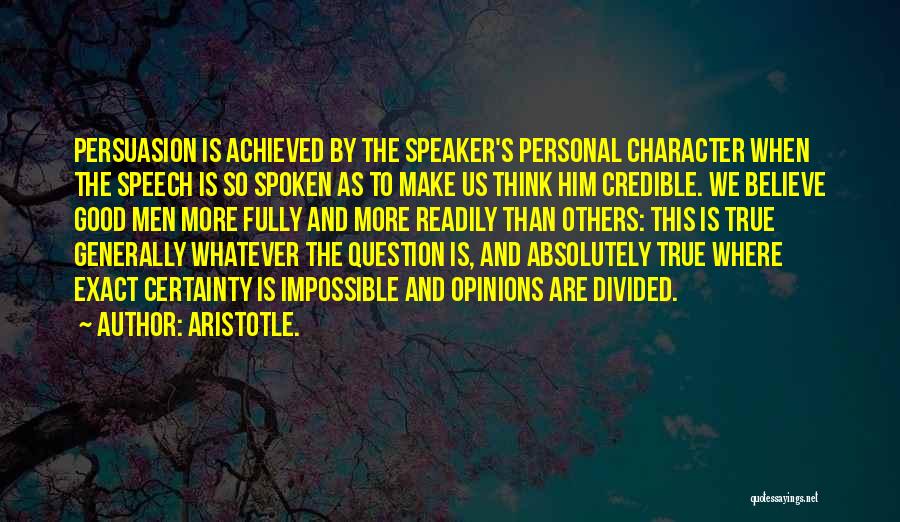
Persuasion is achieved by the speaker's personal character when the speech is so spoken as to make us think him credible. We believe good men more fully and more readily than others: this is true generally whatever the question is, and absolutely true where exact certainty is impossible and opinions are divided. — Aristotle.
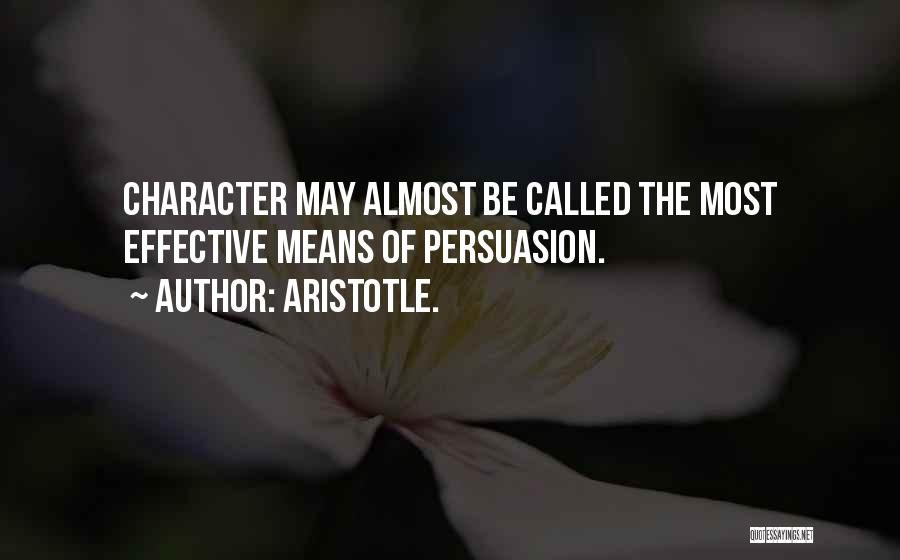
Character may almost be called the most effective means of persuasion. — Aristotle.
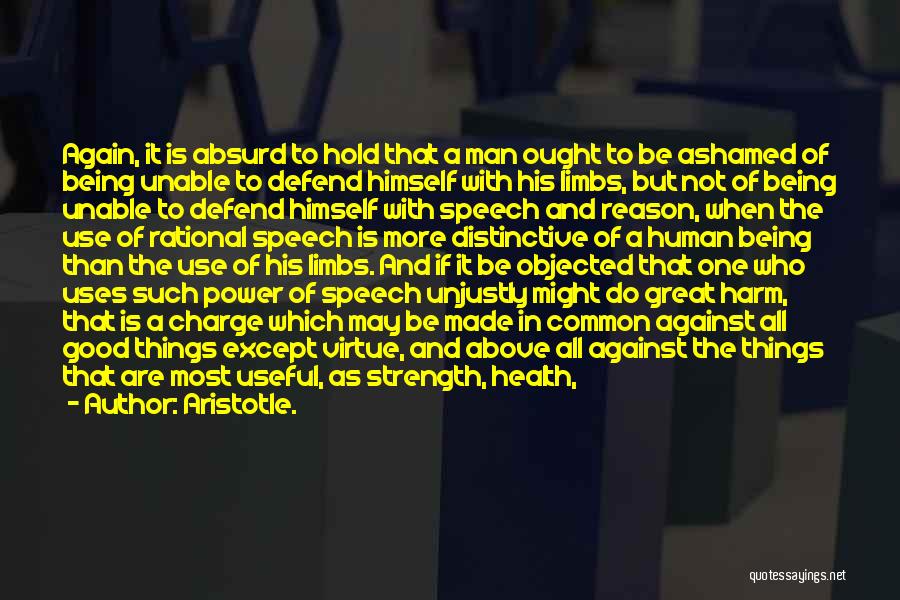
Again, it is absurd to hold that a man ought to be ashamed of being unable to defend himself with his limbs, but not of being unable to defend himself with speech and reason, when the use of rational speech is more distinctive of a human being than the use of his limbs. And if it be objected that one who uses such power of speech unjustly might do great harm, that is a charge which may be made in common against all good things except virtue, and above all against the things that are most useful, as strength, health, wealth, generalship. A man can confer the greatest of benefits by a right use of these, and inflict the greatest of injuries by using them wrongly. — Aristotle.
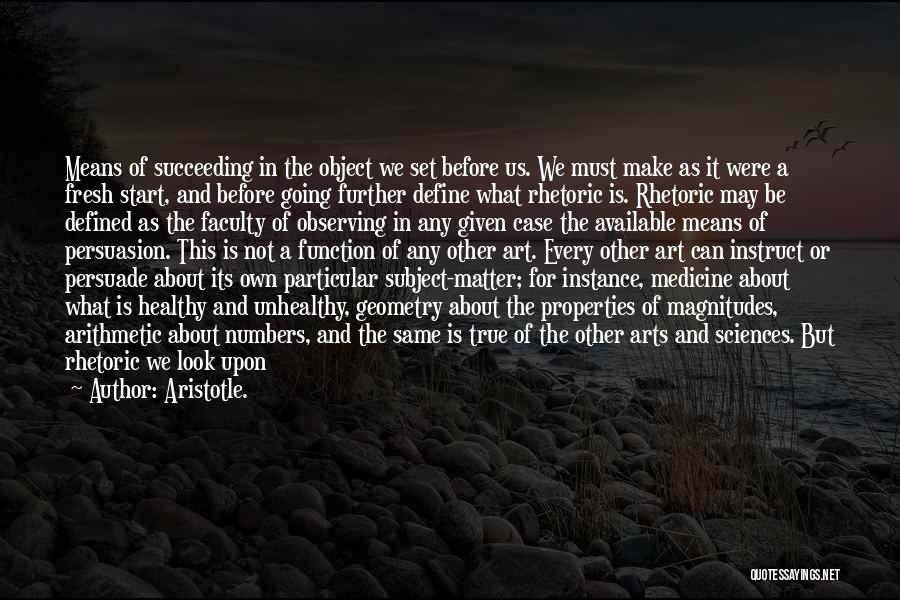
Means of succeeding in the object we set before us. We must make as it were a fresh start, and before going further define what rhetoric is. Rhetoric may be defined as the faculty of observing in any given case the available means of persuasion. This is not a function of any other art. Every other art can instruct or persuade about its own particular subject-matter; for instance, medicine about what is healthy and unhealthy, geometry about the properties of magnitudes, arithmetic about numbers, and the same is true of the other arts and sciences. But rhetoric we look upon as the power of observing the means of persuasion on almost any subject presented to us; — Aristotle.

Rhetoric then may be defined as the faculty of discovering the possible means of persuasion in reference to any subject whatever. — Aristotle.
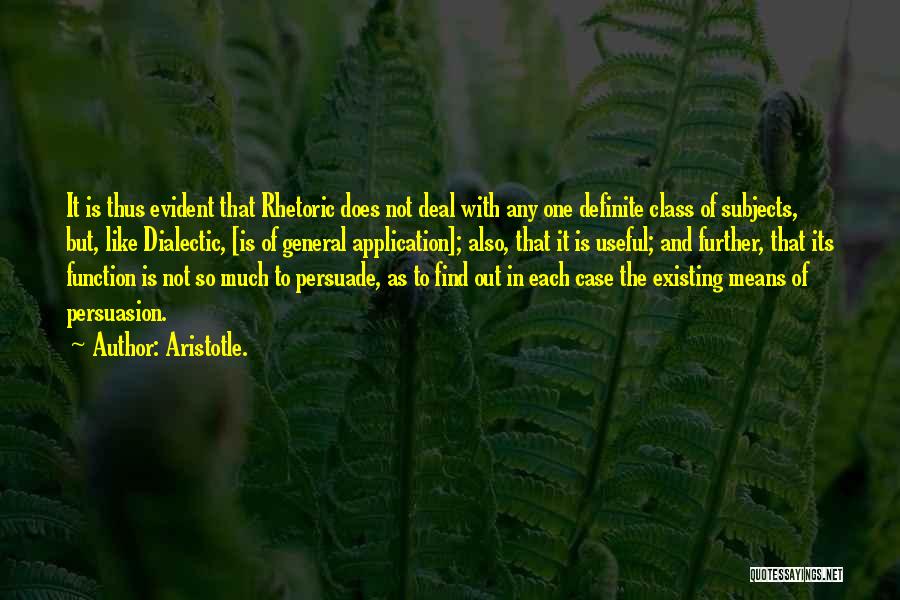
It is thus evident that Rhetoric does not deal with any one definite class of subjects, but, like Dialectic, [is of general application]; also, that it is useful; and further, that its function is not so much to persuade, as to find out in each case the existing means of persuasion. — Aristotle.

Persuasion is clearly a sort of demonstration, since we are most fully persuaded when we consider a thing to have been demonstrated. — Aristotle.
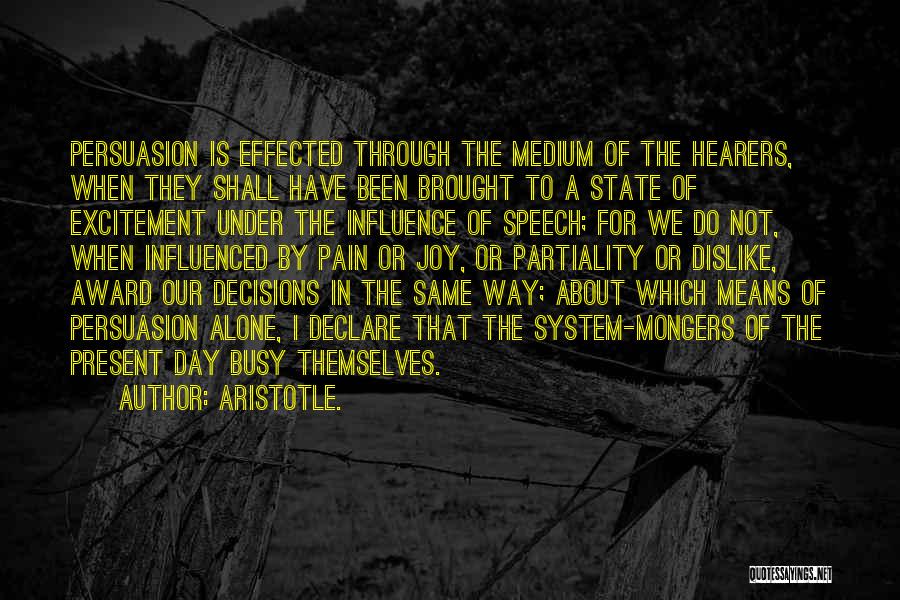
Persuasion is effected through the medium of the hearers, when they shall have been brought to a state of excitement under the influence of speech; for we do not, when influenced by pain or joy, or partiality or dislike, award our decisions in the same way; about which means of persuasion alone, I declare that the system-mongers of the present day busy themselves. — Aristotle.





